
|
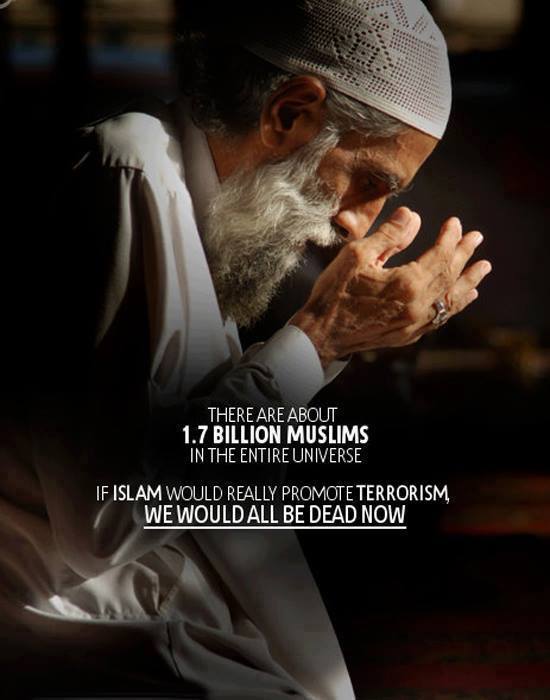
"The medieval Islamic world offered vastly more
freedom than any
of its predecessors, its contemporaries and most of its
successors."
Bernard
Lewis1
In the name
of the merciful and compassionate
Lord.
0 thou who art
enwrapped!
Rise
by night except a little the half, or deduct there from a little, and
chant the sacred
text.
Verily, we will cast on thee a heavy speech.
Verily,
the early part of the night is stronger in impressions and more upright in
speech!
Verily, thou hast by
day a long employment; but mention the name of thy Lord.
Devote thyself thoroughly to Him; there is
no Allah but He; then take Him for a guardian!
And
endure patiently what they say, and
flee from them with a decorous flight.
And
leave those who say it is a
lie, who are possessed of comfort;
and let them bide for a while.
Those who bear the throne and those
around it celebrate the praise of their Lord,
Believe in Him, and
ask pardon for those who
believe.
'Our Lord, thou dost embrace
all things in mercy and knowledge, then pardon those who
turn repentant and follow thy way,
and guard them from the torment of
hell!'
'Our Lord make them enter into the
Garden of Paradise which
thou hast promised to them,
and to those who do well of their fathers, and their wives, and their seed.
Guard them from evil
deeds, for he whom thou shalt guard from evil deeds on that day, thou wilt
have had mercy on, and that is mighty bliss!
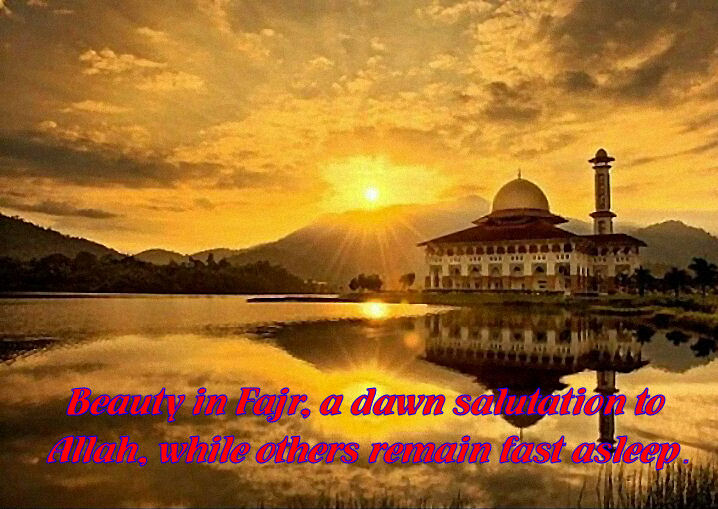
IN the name of the merciful
and compassionate
Allah.
By
the night when it
veils!
And the day when it is displayed!
And by what
forged male and female!
Verily, your efforts are diverse!
As for him who
tithes
and
stands in awe of Allah,
And believes
in the best,
We will send him
easily to ease!
As for him who is closefisted,
And
longs for wealth,
And
calls the good a lie,
We
will send him easily to
difficulty!
And his wealth
shall not avail him!
Verily,
in the creation of the heavens and the
Earth, and in the succession of night and
day, are signs to those
possessed of minds; who remember
Allah standing and sitting or lying on their sides, and
reflect on the creation of the heavens
and the Earth.
'0 Lord! Thou hast
not forged it all in vain.
We
celebrate you Lord!
610 AD
Archangel Jibril (Gabriel) reveals Islam to
Muhammad.
The first three years of his ministry Muhammad shared Islam
privately among relatives and close acquaintances.
Vehement opposition
arises in Mecca.
615 Muhammad sends emissaries to
Aạḥama ibn Abjar in Abyssinia.
622
Muhammad makes 26 day trek to Medina - Hijrah.
The Hijrah marks the
beginning of the Islamic calendar
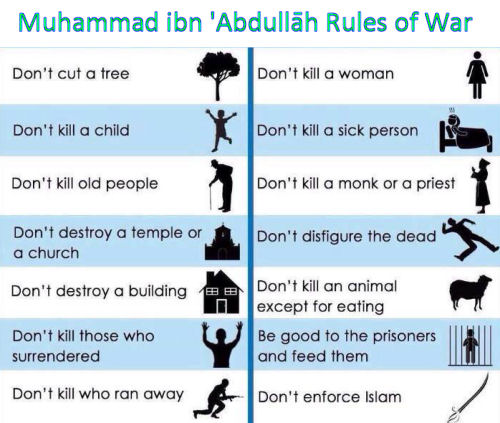
 
The word 'Islam' is defined as the
submission
and/or surrender to
the Will of Allah.
Those that submit to the Will of Allah
abandon the unnatural desires of
agency.
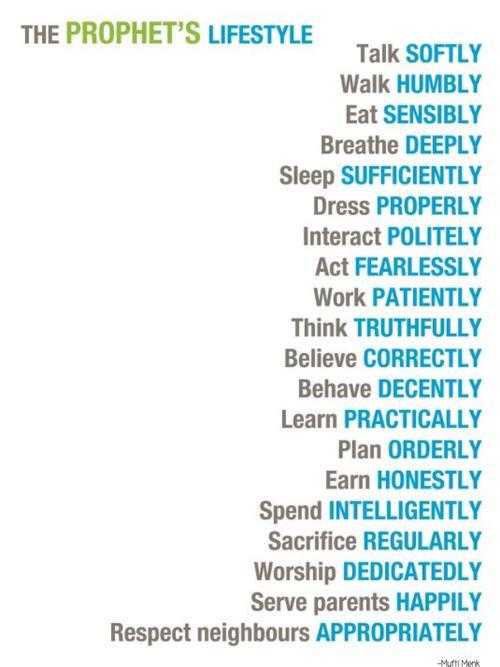
Apostasy in Islam
Conversion of
Muslims to other religions is forbidden and is considered
apostasy,
a turning of the back to God.
In
Muslim theology, apostasy resembles
the crime of treason,
the betrayal of one's own people and country.
Penalties may include
ostracism or even execution if
they live or have lived in an "Islamic State" and are
deemed enemies of the state.
By analogy, in
the age of nation states, an individual who commits
treason (turning state secrets over to
a foreign power, or spies for a foreign power,
etc) is subject to severe penalty - historically, death.
A well known example of a Muslim "apostate" undergoing
persecution is that of Salman Rushdie, whose
novel The Satanic Verses
prompted Ayatollah Khomeini to
issue a fatwa (religious opinion) for his execution.
Even though
some suspect that Khomeini issued this fatwa more because of the
lampooning of Khomeini himself it could be argued that Khomeini's
motivation for issuing the
fatwa is irrelevant as Rushdie's apostasy was the formal ground for the
imposition of the death sentence.
"Some of us are righteous, and
some are less than
righteous.
We knew
full well that we can never run away from Allah on Earth.
When we heard the guidance, we believed
therein.
Anyone with faith in Allah will
never fear any injustice, nor any
affliction.
Among us are the submitters, and among us are
the compromisers.
As for
those who submitted, they
are on the right path.
As for the compromisers, they will be
fuel for Gehenna.
If they remain on the correct path, we will
bless them with abundant water.
We will surely test them
all.
He who
disregards Allah, will be
directed to ever increasing retribution."
Qur'an Jinn
72:11-17
Language of
the Qur'an has been described as
"rhymed prose" as it
partakes of both poetry and prose; rhythmic chanted Quranic
language.
Cutural excellence revolved
exclusively around eloquent speech and the
composition of beautiful and
attractive poetry with literary excellence.
Muhammad found
attentive ears among
contemporaries who held those skilled in the
arts of linguistic composition in high esteem.
Before the rise of
Islam, Arabic was mainly a spoken language with an oral literature of elaborate
poetry and, to a lesser extent, prose.
Writing had not yet developed
and memorization using the Oral Tradidtion was
the most common means of preserving the
literature.
Prophet
Musa had the power to divide the sea with
his hand and rod, parting the
Red Sea, and all his other signs in a time of
magic.
Prophet Īsā ibn Maryam
to cure those who had been blind
from birth and the
leprous, and all his other signs in a time of medicine.
Prophet Muhammad had the book and his other signs in
a time of
eloquence.
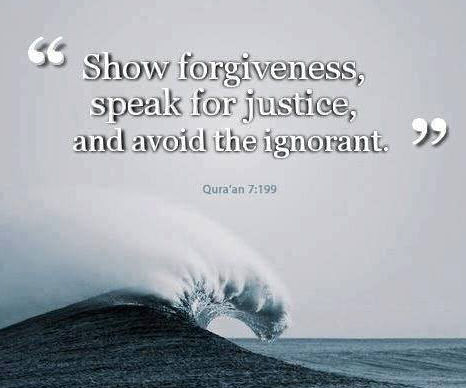
Sharia, Shari-'ah, Shari'a, Shariah,
Syariah,
Islamic law or the Law of Allah
Shariah controls, rules and regulates all public and private
behavior.
Shariah has regulations for personal hygiene, diet, sexual
conduct, and elements of child
rearing.
Mainstream Islam distinguishes
between fiqh, 'understanding of
details' through inferences drawn
by scholars, and sharia, which refers to
the principles that lie behind the
fiqh.
Scholars hope that fiqh and sharia are in harmony in any
given case.
Certain sharia laws are regarded as divinely ordained,
concrete and timeless for all
relevant situations (the ban
against drinking liquor as an intoxicant).
Sharia also has certain
laws which are extracted based on principles established by Islamic lawyers and
judges (Mujtahidun).
In deriving Sharia law, Islamic lawmakers attempt
to use divine principles.
Sharia in general is considered
divine; legal opinion on a
given matter is not.
An Islamic lawyer or judge that attempts to
rule according to Sharia, can be described as 'ruling by Sharia', but this
ruling is not beyond question.
For
Sunni Muslims, the primary
sources of Islamic law are the Qur'an, the Hadith or directions of the Islamic
prophet Muhammad ibn 'Abdullāh, the unanimity of
Muhammad's disciples on a certain
issue (ijma), and Qiyas (drawing analogy from
the essence of divine
principles).
Qiyas - various forms of reasoning,
including by analogy - are used
by the law scholars (Mujtahidun) to
deal with situations with no
concrete rules.
The
consensus of the
community, public
interest, and others were also accepted as secondary sources where the
first four primary sources allow.
In Imami-Shi'i law, the sources of
law (usul al-fiqh) are Qur'an, anecdotes of Muhammad's practices and those of
the 12 Imams, and the
intellect (aql).
Practices called Sharia today have roots in local
customs (Al-urf).
Islamic
jurisprudence is
called fiqh and is divided into two parts: the study of the sources and
methodology (usul al-fiqh - roots of the law) and the practical rules (furu'
al-fiqh - branches of the law).
The
authority of Sharia is drawn from
two primary sources, as well as two secondary sources.
The first major
source is the specific guidance in the Qur'an, and the second source is the
Sunnah, literally the 'Way', i.e. the way
that Muhammad ibn 'Abdullāh
lived his life.
The compilation of what
Muhammad ibn
'Abdullāh said, did or approved of is called the Hadith.)
A
lesser sources of authority is
Qiyas, which is the extension by
analogy of existing Sharia law to
new situations.
Finally, Sharia law can be
based on ijma, or consensus.
Justification for this final
approach is drawn from the Hadith where Muhammad states; "My nation cannot
agree on an error."
The role of
ulema, i.e. scholars, is critical, since they are the ones who study the
Islamic law and therefore have
authority to represent
it.
Sharia has largely been codified by the schools (madhhabs) of
Islamic Jurisprudence (Fiqh).
The comprehensive nature of Sharia law is
due to the belief law must provide all that is necessary for
individual spiritual and physical
well-being.
Possible actions of a Muslim are
divided (in principle) into five categories: obligatory, meritorious,
permissible, reprehensible, and forbidden.
Fundamental to the
obligations of every Muslim are
the Five Pillars of Islam:
declaration of faith (shahada),
prayer
(salah),
alms-giving (zakat),
fasting (sawm) and
pilgrimage
(hajj).
Five Pillars of Islam are accepted by Muslims globally
irrespective of ethnic, regional or sectarian differences.
Sharia is the social equal
to English common law, Roman civil
law, Hindu law,
Laws of the Persians or the Law
of Moses.
There is a striking legal
contractual difference between Sharia law (Islam) versus English
common law (Anglican) and
Roman civil law (Christian).
In both English common
law and Roman civil law lawfully executed and valid
contracts can not be revised
without the consent of both parties.
Western
legal systems may give consumers a legal right to
cancel contracts in specific transactions within
a short period of time after
signing the contract without giving the seller a reason or having to show
"legal cause."
But "Buyer's Remorse" clauses in consumer contracts are
not universal.
And of course a patient may experience buyer's remorse
after purchasing the services of a surgeon but there is no parts replacement
warranty.
The trend in
Western corporate culture is to eliminate consumer rights.
One
method is to write contracts
with arbitration clauses.
Arbitration clauses wave
the right of redress through
the legal system.
Under Sharia law if a party to a contract feels
the contract is unjust he may ask the Sharia law authority to change the terms,
modify or invalidate the contract on the grounds that fairness and justice
under Sharia law requires the equal enrichment of both participants to the
contractual
obligation.
Marriage is intended to be unbounded by time, as
indicated by its characterization as a "firm bond" and by the rules governing
divorce.
Relationship between
the spouses should be based on respect and important decisions concerning both spouses
should be made by mutual consent.
When
marital harmony cannot be attained, the
Quran allows and even advises the spouses to bring the marriage to an end,
although this decision is not to be taken lightly, and
the community is called upon to
intervene by appointing arbiters
from the two families to attempt a reconciliation.
In ancient Islam all it took for either a husband or wife to
divorce was to repeat the phrase "I
divorce thee" three times.
The Quran establishes two means to avoid
hasty divorces.
It prescribes two waiting periods of three months
before the divorce is final in order to give the husband time to reconsider his
decision.
A man who refuses coitus, sexual
intercourse, with his wife leading to automatic divorce, is allowed a
four-month period to break this
ridiculous oath.
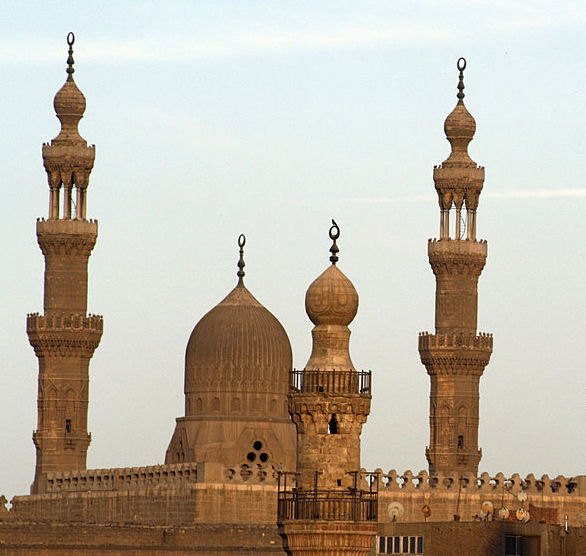
Crime and Islam Sharia requires a high level of proof for the serious crimes and
punishments.
If proof is not as specified then the crime must be
considered a lesser crime.
A major myth is that judges in
Islamic nations have fixed punishments.
The judge under Sharia is
not bound by precedent,
rules, or
prior decisions.
Hadd crimes, the most serious crimes in Sharia law, are
murder, apostasy,
disobedience,
making war upon messengers
of Allah, theft,
adultery,
defamation,
false accusation,
robbery and
consumption of
intoxicants.
These are considered crimes against
Allah.
Tazir crimes are acts of
disobedience to the
Word and
Law of Allah.
Tazir crimes are crimes against humanity.
A Qesas crime is one of
retaliation.
If you commit a Qesas
crime, the victim has a right to seek
retribution.
The concept of retribution was
found in the first statutory "Code of Hammurabi" and in the
Law of Moses in the form of "an eye
for an eye."
Muslims add to that saying "but
it is better to forgive."
Contemporary
common law is filled with the assumptions of retribution.
The American
justice system has adopted a
retribution model which sets fixed punishments for each and every infraction of
law as a profit center.
The American federal code contains
"mandatory minimum" sentences.
Many states have fixed punishment for
drugs, violence and
use of a
weapon.
Qesas crime = retribution: if one commits a crime he knows
the punishment.
Diya has its roots in Islamic law
and dates to the time of the prophet Mohammad when there were many local
families, tribes and clans.
The prophet Mohammad was
able to convince
several tribes to take a monetary payment in retribution for damage to the
clan or tribe.
Diya is paid by the offender to the victim if he is
alive.
If the victim is deceased, the money is paid to the victim's
clan or tribe.
The
assumption is victims will be compensated for their loss.
Under
English common law, the victim or family must sue the offender in a
civil tort action for damages.
Qesas law combines the process of criminal and civil hearings into one.
Qesas crimes are compensated as restitution under common and civil law.
Qesas crimes require compensation
for each crime committed.

Math and Islam
"Mechanical methods can suggest the truth of
mathematical propositions, which
then may be rigorously proven by mathematical
methods."
Archimedes
Decimal
system is dependent upon the Arabic numerical system.
Algebra was first
fully developed by Al Khwarism, the "father of algebra".
Al-Tusi is the
"father of trigonometry".
Al-Khashi, from
Persia, invented decimal
fractions.
 Sunni Islam is the world's largest
religious denomination, followed by Catholicism.
Sunni Islam is the world's largest
religious denomination, followed by Catholicism.
Sunni and
Shi'a culminate centuries
of competition between ideologies.
Both used the other to
further cement their own
identities and doctrines.
The
schism occurred in a debate over who were the true adherents to the Sunnah, the
Prophet'
tradition.
A caliphate is a state under the leadership of an Islamic
steward considered to be the successor to Muhammad ibn 'Abdullah.
Sunni rulers embarked on sweeping
conquests that extended the caliphate.
The last caliphate ended with
the fall of the Ottoman
Empire.
Sunni emphasize the all encompassing power of Allah in the
material world while Shi'a value martyrdom and
sacrifice to turn the dark into
light.
2009 Sunni Muslims constitute 90% of
the world's Muslim population.


The color green has a
number of traditional associations in Islam.
Green is used in several
national flags as a symbol of Islam.
These include:
Afghanistan,
Algeria,
Azerbaijan, Comoros,
Iran, Mauritania, Pakistan,
Saudi Arabia and Sri
Lanka.
1. Lewis was known for his
literary debates with Edward Said,
the Palestinian American literary theorist whose aim was to deconstruct what he
called Orientalist scholarship.
Said asserted that the field of
Orientalism was political intellectualism bent on self-affirmation rather than
objective study, a form of racism, and a tool of imperialist
domination.
"What imperial purpose was served by deciphering the ancient
Egyptian language, for example, and then restoring to the Egyptians knowledge
of and pride in their forgotten, ancient past?" - Bernard Lewis, Islam and
the West
During the Presidency of
George W Bush, he advised
Cheney, Donald Rumsfeld and Bush himself.
"Methodologically, Lewis
insists that terrorism by individual Muslims should be considered Islamic
terrorism, while terrorism by individual Jews or Christians is never considered
Jewish or Christian terrorism." - As'ad AbuKhalil |
|

 |
This web site is not a commercial web site and
is presented for educational purposes only.

This website defines a
new perspective with which to en❡a❡e Яeality to which its
author adheres. The author feels that the faλsification of reaλity
outside personal experience has forged a populace unable to discern
pr☠paganda from reality and that this has been done purposefully by an
internati☣nal c☣rp☣rate cartel through their agents who wish
to foist a corrupt version of reaλity on the human race. Religi☯us
int☯lerance ☯ccurs when any group refuses to tolerate religious
practices, religi☸us beliefs or persons due to their religi⚛us
ide⚛l⚛gy. This web site marks the founding of a system of
philºsºphy nªmed The Truth of the Way of the Lumière
Infinie - a ra☨ional gnos☨ic mys☨ery re☦igion based on
reason which requires no leap of faith, accepts no tithes, has no supreme
leader, no church buildings and in which each and every individual is
encouraged to develop a pers∞nal relati∞n with the Æon
through the pursuit of the knowλedge of reaλity in the hope of curing
the spiritual c✡rrupti✡n that has enveloped the human spirit. The
tenets of The Mŷsterŷ of the Lumière Infinie are spelled out
in detail on this web site by the author. Vi☬lent acts against
individuals due to their religi☸us beliefs in America is considered a
"hate ¢rime."
This web site in no way c☬nd☬nes
vi☬lence. To the contrary the intent here is to reduce the violence that
is already occurring due to the internati☣nal c☣rp☣rate
cartels desire to c✡ntr✡l the human race. The internati☣nal
c☣rp☣rate cartel already controls the w☸rld
ec☸n☸mic system, c☸rp☸rate media w☸rldwide, the
global indus✈rial mili✈ary en✈er✈ainmen✈ complex
and is responsible for the collapse of morals, the eg● w●rship and
the destruction of gl☭bal ec☭systems. Civilization is based on
coöperation. Coöperation with bi☣hazards at
the point of a
gun.
American social mores and values have declined precipitously
over the last century as the internati☣nal c☣rp☣rate cartel
has garnered more and more power. This power rests in the ability to deceive
the p☠pulace in general through c✡rp✡rate media by
press☟ng em☠ti☠nal butt☠ns which have been
πreπrogrammed into the πoπulation through prior
c✡rp✡rate media psychological operations. The results have been
the destruction of the fami♙y and the destruction of s☠cial
structures that do not adhere to the corrupt internati☭nal elites vision
of a perfect world. Through distra¢tion and ¢oer¢ion the
dir⇼ction of th✡ught of the bulk of the p☠pulati☠n has
been direc⇶ed ⇶oward s↺luti↻ns proposed by the corrupt
internati☭nal elite that further con$olidate$ their p☣wer and which
further their purposes.
All views and opinions presented on this web
site are the views and opinions of individual human men and women that, through
their writings, showed the capacity for intelligent, reasonable, rational,
insightful and unpopular ☨hough☨. All factual information presented
on this web site is believed to be true and accurate and is presented as
originally presented in print media which may or may not have originally
presented the facts truthfully. Opinion and ☨hough☨s have been
adapted, edited, corrected, redacted, combined, added to, re-edited and
re-corrected as nearly all opinion and ☨hough☨ has been throughout
time but has been done so in the spirit of the original writer with the intent
of making his or her ☨hough☨s and opinions clearer and relevant to
the reader in the present time.
Fair Use Notice

This site may contain
copyrighted material the use of which has not always been specifically
authorized by the copyright owner. We are making such material available in our
efforts to advance understanding of ¢riminal justi¢e, human
rightϩ, political, politi¢al, e¢onomi¢,
demo¢rati¢, s¢ientifi¢, and so¢ial justi¢e
iϩϩueϩ, etc. We believe this constitutes a 'fair use' of any
such copyrighted material as provided for in section 107 of the US Copyright
Law. In accordance with Title 17 U.S.C. Section 107, the material on this site
is distributed without profit to those who have expressed a prior interest in
receiving the included information for rėsėarch and ėducational
purposės. For more information see:
www.law.cornell.edu/uscode/17/107.shtml. If you wish to use copyrighted
material from this site for purposes of your own that go beyond 'fair use', you
must obtain permission from the copyright owner. |
 Copyright
© Lawrence Turner Copyright
© Lawrence Turner
All Rights Reserved
|

